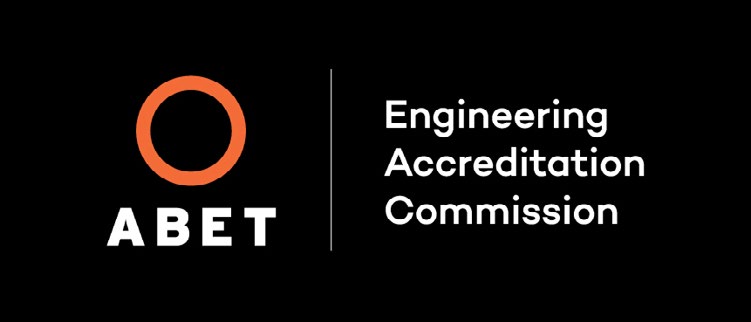B. S. in Systems Engineering
If the solution to a problem involves several interconnected pieces, it is a system.
Systems engineers can integrate into a variety of roles to design, implement and maintain complex systems of hardware and software. Through an interdisciplinary approach to problem solving, systems engineers take the lead and get things done.
Typically, systems engineers:
- understand the computing, electrical, mechanical, industrial and business aspects of systems.
- develop solutions that meet consumers and customer needs.
- constantly monitor all stages of operations and are involved with managing projects.
- ensure that problems have been solved.
If you choose to study systems engineering, you’ll be in high demand because you’re flexible, versatile and a creative problem solver. Because the College of Charleston has a strong core curriculum that blends science and critical thinking, this is the perfect place to study!
 The B.S. in Systems Engineering Program is accredited by the Engineering Accreditation Commission of ABET, under the commission’s General Criteria and Program Criteria for Systems and Similarly Named Engineering Programs.
The B.S. in Systems Engineering Program is accredited by the Engineering Accreditation Commission of ABET, under the commission’s General Criteria and Program Criteria for Systems and Similarly Named Engineering Programs.
Program Highlights
- Internships and mentorship opportunities mean you’ll develop strong connections with local organizations.
- A diverse curriculum means you’ll be able to get a job in a variety of fields including mechanical, electrical, computer and industrial systems.
- Our industrial advisory board comprises local business executives. They’ll provide you with guidance and expertise to help you – and the program – stay tuned in to industry needs.
- Study abroad during your sophomore year at an engineering university in either Ireland or the U.K. Gain exposure other experiences and perspectives that will help you better engage with diverse teams.
- The senior design project will take you deeper into specific areas of systems engineering and steer you toward your first job.
- With a mix of hands-on laboratory and theoretical classes, you’ll be prepared to enter the workforce with all the technical knowledge you need.
- The interdisciplinary nature of a College of Charleston education aligns perfectly with a systems engineering curriculum. We offer a strong academic core that promotes adaptability, creativity and critical thinking, but you’ll find these principles represented in your engineering courses as well.
About the Program
-
Mission Statement
The systems engineering program at the College of Charleston aims to support economic development in the Lowcountry of South Carolina and beyond by producing a well-rounded, technical problem solver with excellent communication and leadership skills who can effectively contribute to the advancement of manufacturing, engineering and industrial firms.
-
Curriculum
See the course catalog for current systems engineering program requirements.
Current students should visit The Hub to download the semester-by-semester roadmaps and the pre-requisites flowchart.
Like all students at the College, the program includes a robust core foundation of liberal arts classes. This will prepare you for life after graduation - both professionally and personally.
The systems engineering program focuses on the areas of robotics, factory automation, the Industrial Internet of Things (IIOT), 3D vision and other advanced manufacturing technologies. Success in this field can require technical skills, but also project management and problem solving skills.
In addition to the labs, the program includes projects that connect what you learn to a practical implementation. Many students take advantage of the option to study abroad in Ireland or the U.K.
When you graduate, you'll be ready to immediately make an impact. Choose to go to work or build on what you've learned with advanced study.
-
Student Learning Outcomes
As a graduate of this program, you will be able to demonstrate:
- An ability to identify, formulate and solve complex engineering problems by applying principles of engineering, science and mathematics
- An ability to apply engineering design to produce solutions that meet specified needs with consideration of public health, safety and welfare, as well as global, cultural, social, environmental and economic factors.
- An ability to communicate effectively with a range of audiences.
- An ability to recognize ethical and professional responsibilities in engineering situations and make informed judgments, which must consider the impact of engineering solutions in global, economic, environmental and societal contexts.
- An ability to function effectively on a team whose members together provide leadership, create a collaborative and inclusive environment, establish goals, plan tasks and meet objectives.
- An ability to develop and conduct appropriate experimentation, analyze and interpret data, and use engineering judgment to draw conclusions.
- An ability to acquire and apply new knowledge as needed, using appropriate learning strategies.
-
Program Educational Objectives
As a graduate of this program, you will be able to:
- Secure positions in systems engineering or related fields, demonstrating their ability to contribute effectively to complex engineering projects while fostering creativity and innovation.
- Contribute to society responsibly and ethically, ensuring that their work benefits the community and upholds the highest standards of integrity.
- Show dedication to lifelong learning by continually enhancing professional skills through various avenues, including graduate studies, professional development programs, and self-directed learning.
Study Abroad
Choose to study at either Heriot-Watt University (Scotland) or National University of Ireland Maynooth (Ireland). We recommend students do this during their sophomore year.
Current students should visit The Hub for more information.
You’ll need to apply through the Center for International Education.
